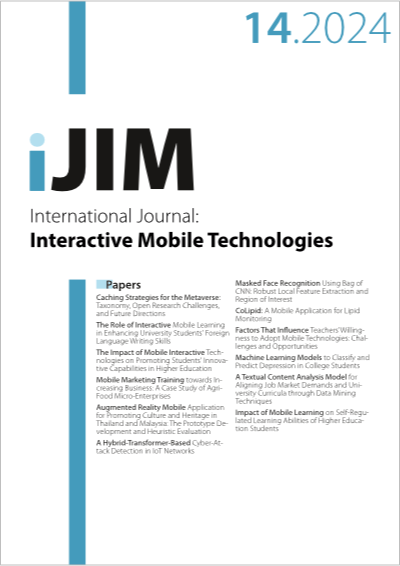The Role of Interactive Mobile Learning in Enhancing University Students' Foreign Language Writing Skills
DOI:
https://doi.org/10.3991/ijim.v18i14.50405Keywords:
interactive mobile learning, foreign language, education quality, mobile technologyAbstract
This study aims to investigate the effectiveness of interactive mobile learning (IML) in improving the foreign language writing skills of college writers. Utilising the pervasive and practical nature of mobile devices, IML’s engaging and enjoyable features make it an exceptional instrument for language acquisition. The study is grounded in cognitive load theory, constructivism, and social theory. These assumptions offer a strong foundation for examining the effectiveness of mobile learning applications in improving students’ writing skills. The study replicated an experimental design and consisted of 200 college students who were enrolled in English as a Foreign Language (EFL) courses. The participants were segregated into two cohorts: one cohort employed the mobile application Write Better to enhance their writing skills, while the other cohort depended on traditional methods of teaching. Data was collected through pre- and post-tests, tracking of app usage, and analysis of qualitative remarks. The students in the experimental group exhibited much bigger enhancements in their writing skills compared to those in the control group. Enhanced written output was further correlated with increased use of the mobile application. Although there were some technical challenges, a qualitative investigation found that students liked the app’s captivating attributes, such as the ability to receive immediate feedback and collaborate on projects. This study enhances the current body of literature by presenting data that supports the effectiveness of IML in EFL writing teaching. Furthermore, it offers instructors clear instructions on how to incorporate mobile devices into the classroom setting.
Downloads
Published
How to Cite
Issue
Section
License
Copyright (c) 2024 Nan Zhang (Submitter); Tian Li

This work is licensed under a Creative Commons Attribution 4.0 International License.



